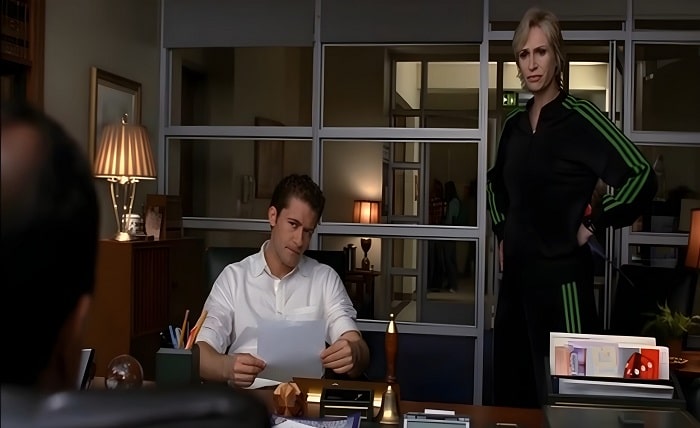Schoolhouse Rock ‘n’ Roll: Miss Pillsbury Took on Figgins

Hold onto your hair extensions, Gleeks! We’re taking a trip back to McKinley High to revisit a scene that ignited passionate online debates, birthed countless memes, and cemented Emma Pillsbury’s place as a fierce advocate for her students. Yes, we’re talking about the legendary showdown between the ever-so-sweet music teacher and the perpetually exasperated Principal Figgins in the Season 2 episode “The Sue Sylvester Shuffle.”
This seemingly simple scene – Emma arguing for the reinstatement of the Glee Club – transcends typical student-teacher-principal tropes. It becomes a battle cry for artistic expression, a passionate plea for the importance of extracurriculars, and a hilarious display of Emma’s surprisingly fiery spirit. Let’s unpack the genius of “Emma Argues with Principal Figgins” and explore its lasting impact on the show and beyond.
The Spark: Sue Sylvester’s Masterful Machinations
The conflict erupts thanks to the conniving schemes of Sue Sylvester, the Cheerios coach with a vendetta against the Glee Club. She manipulates Figgins into cutting their funding, claiming they’re a budget drain and a haven for troublemakers. Emma, ever the champion of her misfit crew, refuses to let their dreams be shut down.
Standing Up for the Underdogs: Emma’s Moral High Ground
Emma’s argument isn’t fueled by anger or defiance. It’s rooted in a deep belief in the transformative power of the arts. She eloquently reminds Figgins that the Glee Club isn’t just about singing and dancing; it’s about building confidence, finding community, and discovering one’s voice. Her words resonate with viewers who may have found solace and belonging in their school choirs, bands, or clubs.
Vocal Showdowns and Showstoppers: When Song Becomes Weapon
But Emma doesn’t rely solely on logic. She knows Figgins responds best to his beloved show tunes. What ensues is a hilarious musical duel, with Emma belting out a powerful rendition of “Don’t Stop Believin'” that counters Figgins’s crooning of “You’re the One That I Want.” This playful use of music elevates the scene beyond a typical dialogue, adding humor, tension, and a powerful emotional charge.
Humiliation or Empowerment? Navigating the Fine Line of Comedy
Emma’s initial attempts to appease Figgins with over-the-top flattery and cringe-worthy costumes can be read as humiliating or empowering, depending on your interpretation. Some see it as pandering to authority, while others view it as a clever strategy to disarm her opponent. This ambiguity reflects the complexity of navigating power dynamics in educational settings.
Beyond Glee: “Emma Argues with Principal Figgins” as a Cultural Icon
This scene transcends the show’s fandom and enters the realm of pop culture. The meme-worthy images, quotable lines (“You think you can out-diva Figgins?”), and parodies are a testament to its cultural impact. It speaks to a wider audience facing bureaucratic hurdles, advocating for themselves or their passions, and finding their voice even in the face of skepticism.
Conclusion
“Emma Argues with Principal Figgins” remains a beloved moment in Glee’s history. It’s more than just a funny scene; it’s a rallying cry for underdogs, a celebration of self-expression, and a reminder that sometimes, the best way to fight for what’s right is to belt out a show tune or two. So, put on your Gleeclub jackets, raise your voices, and keep believing in the power of music, passion, and Emma Pillsbury’s unapologetic sass.
FAQ
1. Did Emma actually win the argument?
While Figgins doesn’t explicitly reinstate the Glee Club, his softened expression and Emma’s unwavering determination suggest she planted a seed of doubt. Ultimately, the club is saved thanks to Sue’s unexpected change of heart.
2. Was Emma’s behavior out of character?
While initially hesitant, Emma’s fiery side emerges when her beloved students are threatened. This showcases her hidden depths and proves she’s not just a pushover.
3. What are the themes of the scene?
The importance of extracurriculars, student-teacher relationships, fighting for your beliefs, and the transformative power of music are all central themes.



